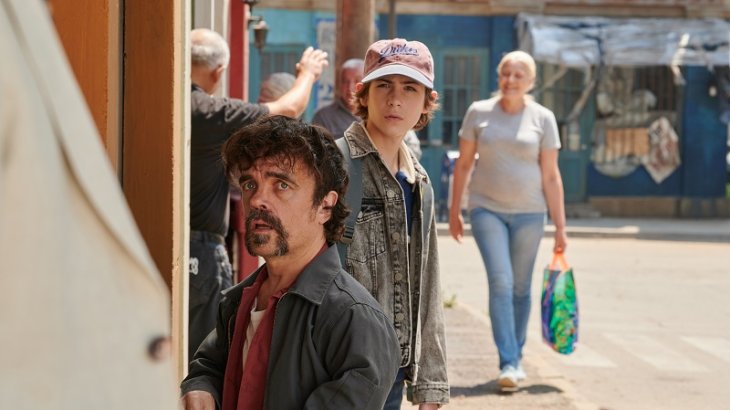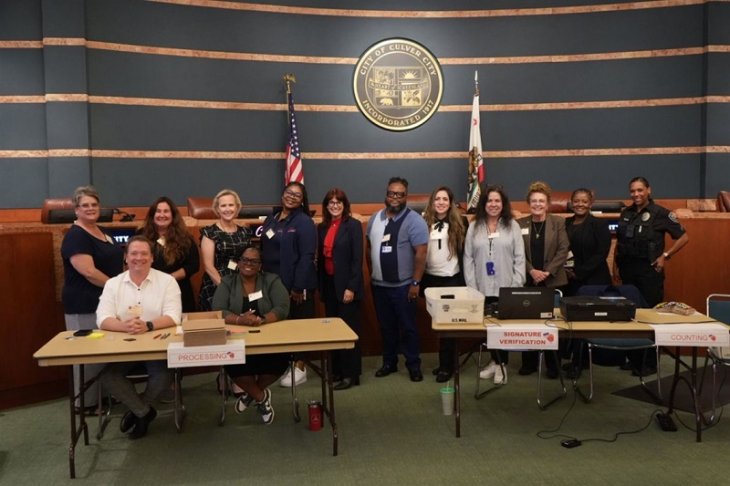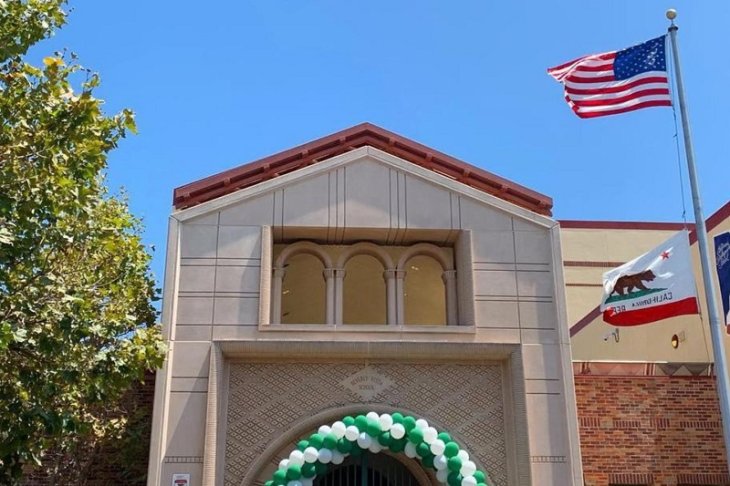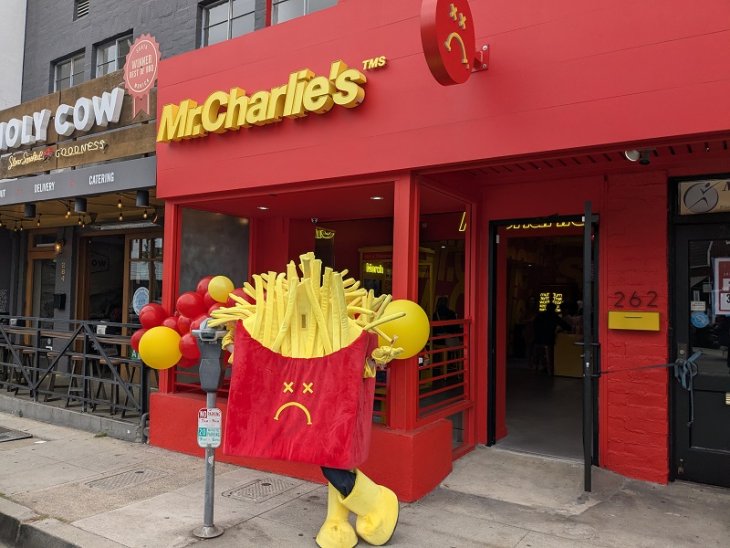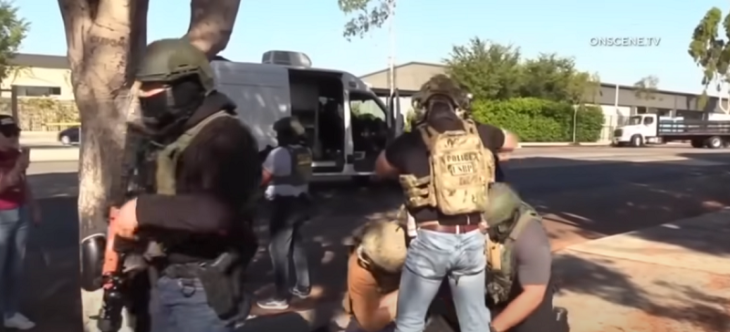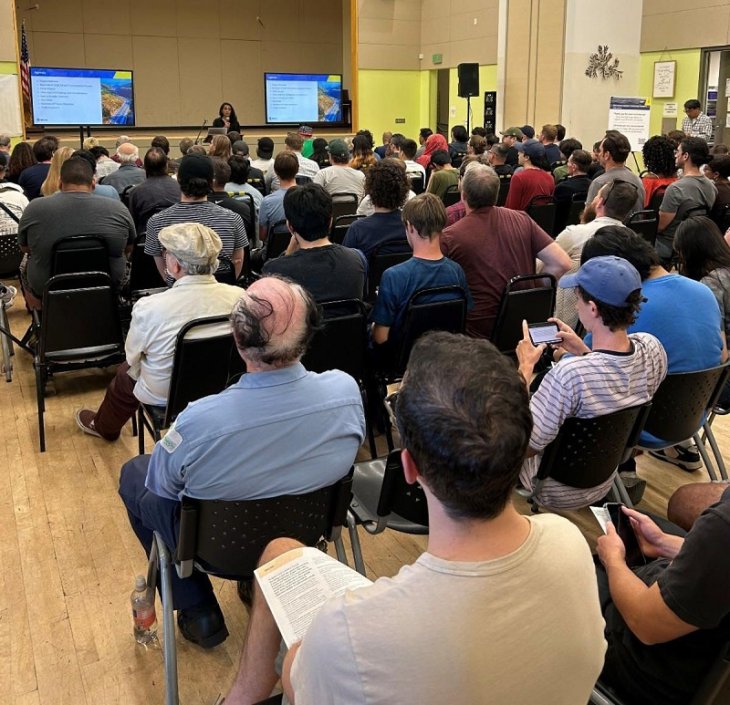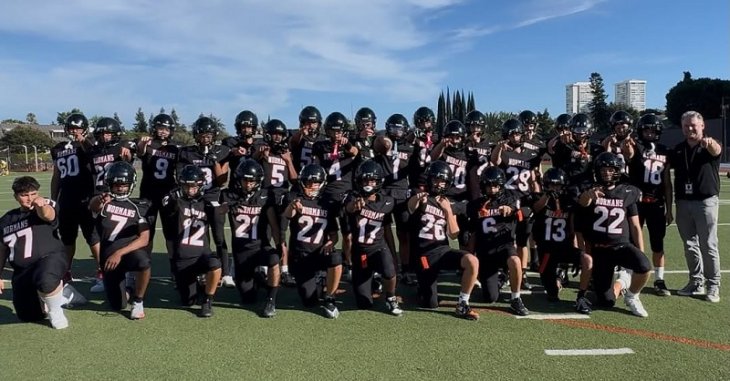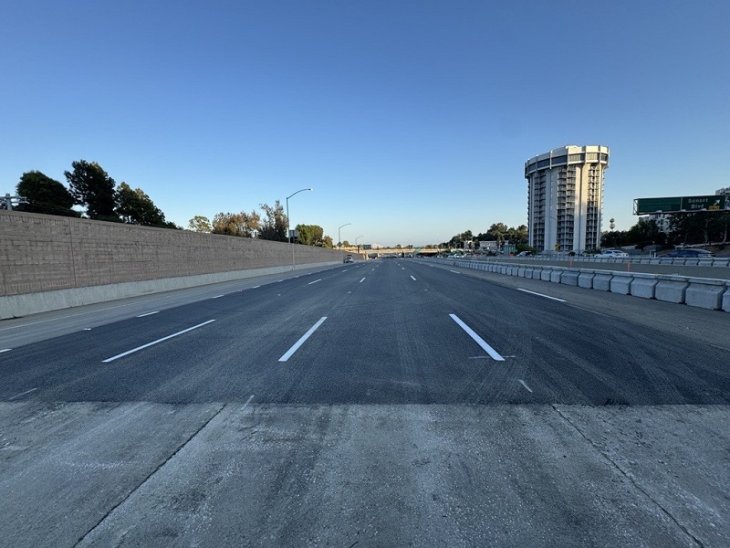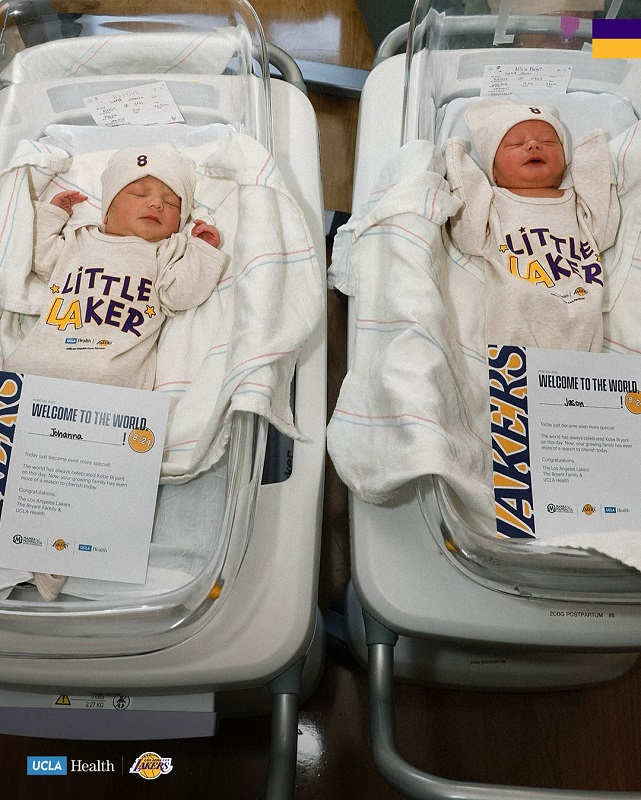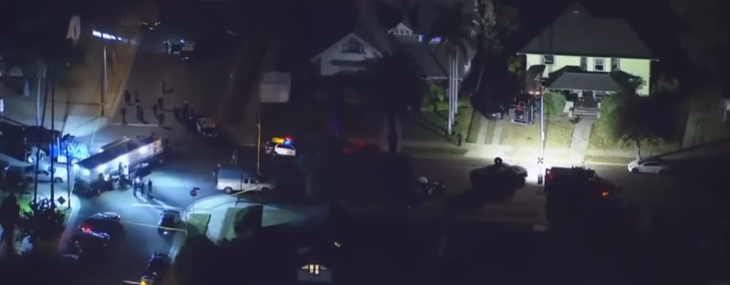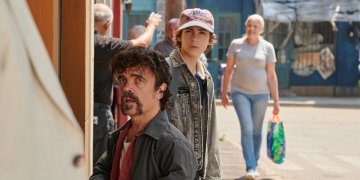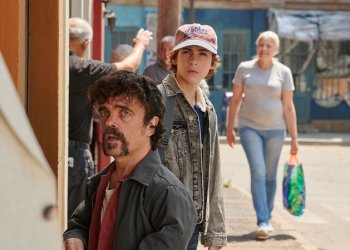
The VA and lawyers representing homeless veterans in the area have agreed to dismiss a lawsuit filed by homeless veterans seeking additional medical and housing assistance on the VA’s West Los Angeles campus.
Instead, all parties have agreed to cooperate to try and find a way to significantly increase services and housing to homeless veterans at the 387-acre facility.
Secretary of Veterans Affairs Robert McDonald, plaintiff attorney Ron Olson and former mayor of Santa Monica, Bobby Shriver, announced the new approach at a press conference held at the VA campus January 28.
While no specific plans regarding care our housing were announced at the press conference, the speakers outlined a process for moving forward, with ambitious goals and a very tight timetable. The tone was decidedly serious and businesslike; it was all about getting homeless veterans off the streets as quickly and effectively as possible.
A strategy document to describe the process that will be followed is to be completed by February 13. A committee will be formed that will include representatives of all key stakeholders. A new master plan that will lay out how the campus will be used in the future is to be completed by October. A special assistant to Secretary McDonald will be named whose job it will be to keep this effort on track.

As soon as possible, more will be done on campus to house and help disabled homeless veterans. All options will be considered, including rehabbing currently empty buildings and possibly setting up tents on campus. Longer term, anything is possible, but the goal is to build permanent housing and “bridge” housing for those waiting to get in.
As part of the master plan, an “exit strategy” will be determined for outside entities that currently have leases with the VA for use of the VA property. This includes UCLA, Brentwood school, and Veterans Park Preserve.
UCLA has a baseball diamond on the campus; Brentwood School expanded its school onto leased VA land; and Veterans Park Preserve is the middle of attempting to build a park on the campus. Construction of the park was recently halted by a federal judge.
Secretary McDonald, who has only been in office for six months, said when he learned of the lawsuit that right away it seemed to him something seemed amiss.
As former CEO of Procter & Gamble, McDonald was very involved in P&G’s sponsorship of the Special Olympics, and as a result of that association, he had come to know the Shriver family quite well. Eunice Kennedy Shriver founded the Special Olympics, which were first held in 1968. Bobby Shriver, former mayor of Santa Monica, is son of Eunice and Sargent Shriver.
McDonald said if Bobby Shriver was suing the federal government, then he knew something wasn’t quite right.
McDonald called Ron Olson, an attorney with Munger, Tolles & Olson, shortly before Christmas. Olson is working with ACLU attorneys, representing plaintiffs – the homeless veterans.
Olson said the lawsuit probably wasn’t the ideal approach to all this, and that people in charge should have been able to figure this out.
But the lawsuit became unavoidable, he said, when plaintiffs concluded the VA was not going to be fully responsive to the needs of homeless veterans.
The quest to find more housing and services for homeless veterans has been going on for decades. Robert Rosebrock of Brentwood has been leading demonstrations outside the VA gates every Sunday for years, alleging that the on-campus leases amounted to a “land grab” and that the land should be put to use as housing for homeless veterans instead.
Rosebrock was arrested once by federal police for hanging a U.S. flag upside down on the outside of the VA gates — an internationally recognized sign of distress. The ACLU represented Rosebrock in that case, claiming Rosebrock’s first amendment rights were being abridged. Rosebrock won that case and the association with the ACLU began.
Bobby Shriver, when discussing the role of the attorneys, said “we depend on people like this to make it real.” Local advocacy alone didn’t do it, he noted; the lawsuit was “necessary” in his opinion.
Olson said he was “damn thrilled” to have the homeless veterans as clients. ” I’ve never had a more important set of clients,” he said. “They all answered the call and came home worse for it.”
The lawsuit has gone on for four years, with no clear-cut resolution in sight. Plaintiffs had won on some points, he noted – and lost on others. He was delighted to get the call from Secretary McDonald, he said. McDonald made several other calls to others with influence in the matter, including newly elected Congressman Ted Lieu, who was in the audience.
Olson said that within a week a basic framework was hammered out. He gave Secretary McDonald high praise for his leadership abilities. “We moved from adversaries to partners in a month’s time,” said Olson.

All parties have agreed to a very tight time schedule, with a strategy document due Feb. 13. The master plan, to be completed by October, will include plans for permanent supportive housing on campus, and bridge housing to get people onto campus or alternative housing while permanent housing is being built.
McDonald said the tight timetable is in keeping with President Obama’s commitment to end homelessness among veterans by the end of 2015. The new approach will be very “veteran centric,” said McDonald. Special attention will be paid to severely disabled veterans, female veterans and aging veterans, he added.
It will be important to respect veterans’ choices, said McDonald; he said the VA understands some homeless veterans would prefer to continue to live off campus. HUD issues vouchers that can be used by homeless veterans to obtain housing in the private sector.
$50 million has been committed to get the new effort kick-started, with the prospect of more to come, said McDonald. 400 people will be assigned to the new mission. “We want to get this right,” he noted.
Secretary McDonald said the VA was going through a massive reengineering, in which the customer – the veterans – “will be put at the center of all we do.”
McDonald said HUD Sec. Julian Castro was also in Los Angeles, participating, as was Secretary McDonald, in a local count of homeless individuals taking place citywide. HUD will be consulted closely as the VA try to figure out the best approach to battling the problem of homeless veterans.
After describing the path forward, McDonald, Olson and Shriver took questions from assembled reporters.
One asked Ron Olson if it was risky to drop the lawsuit, because that would reduce pressure on the VA to be responsive. Ron Olson said there was more risk in continuing the lawsuit because it could drag out for years and results were uncertain — and he thought it was important to cooperate with the opportunity presented by McDonald.
He gave credit to Secretary McDonald for establishing a new set of conditions that would make progress possible. McDonald made clear he’d be a more willing partner if he could work with people who weren’t suing him.
Olson, McDonald and Shriver all readily agreed everything they were doing was based on trust but that they thought it was worth the risk.
When asked if there would be managerial changes at the Greater Los Angeles VA facility, McDonald said there already have been several changes recently throughout the VA – with more likely to come. The VA has been plagued in recent years by allegations of long wait times and “cooking the books” to make performance measurements look good.
Robert McDonald replaced Eric Shinseki as Secretary of Veterans Affairs. Locally, Donna Beiter, the Greater LA VA director, recently retired, as did Ralph Tillman, second-in-command at the West LA campus.
An interim medical director is now in charge, and McDonald said it would be important to have a fully focused and empowered director in place to help oversee the coming months of planning and implementation.
In response to another question, McDonald said an audit was being performed to determine how much money was raised via the VA leases over the years — and where the money was spent.
In response to a follow up question, he said he didn’t yet know if this information would be made public when the audit was completed.
Olson returned to the theme that this was a necessary lawsuit – and a rather large undertaking.
He said there were too many attorneys involved to thank them all properly, but singled out Mark Rosenbaum (formerly chief counsel at Southern California ACLU, now with Public Counsel, the nation’s largest pro bono law firm); David Sapp, director of education, advocacy and general counsel at ACLU of Southern California; Gary Blasi of ACLU and Public Counsel; and John Ulin of Arnold & Porter for their contributions.
Olson reiterated that the arrival of Secretary McDonald was a game-changer. Bobby Shriver noted that the movie, American Sniper, was doing a lot to increase citizens’ concerns for the plight of today’s veterans returning from Iraq and Afghanistan.
It seemed like finally, after all these years, everyone concerned was ready to move on this. Timing, as they say, is everything.
At the end of the press conference, Norma Stone, 79, an Air Force veteran, told McDonald she and others were ready to help in any way they could. She said people were tired of talking and ready for action.
Norma completely captured the spirit of the day’s announcements.

